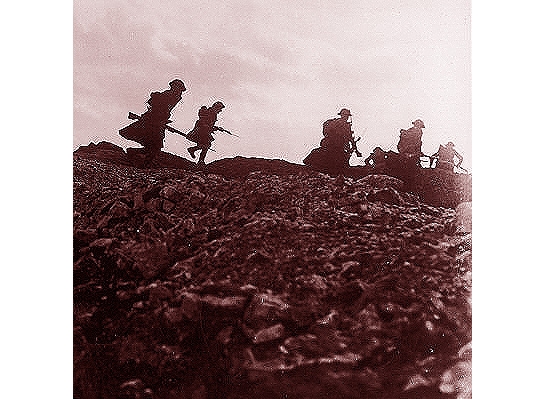
An account by one learned traveler who journeyed to that one isolated piece of ground on the isle of Skyros that will forever be England - the grave of the English poet Rupert Brooke (1887 - 1915).
The literati who wrote the attached article went to great lengths imparting the significance of Skyros throughout all antiquity and it's meaning to the world of letters; credited only as S. Casson, he informed his readers that he arrived on the island five years after the original burial in order to erect the headstone that is currently in place and describes the shepherds and other assorted rustics in some detail while alluding religiously to the works of Homer. "I wonder how many people will visit this remote island to see the grave? It means long and weary journeying, and will be a real pilgrimage. From the sea, just off Tris Boukes Bay, the monument can just be seen, with it's white Pentelic marble showing clear through the olive trees, the only visible sign of man or his works at this end of the island."
To see a color photograph of the grave, click here.. Although the U.S. President Woodrow Wilson asked Americans to be "neutral in thought and deed" on all matters concerning the war in Europe [before to April, 1917], the sympathies of the American people firmly stood with the French and their allies. Whether they served as soldiers or non-combatants, the American public was proud of those young Americans who expressed their outrage by volunteering to serve among the French or British armies. Numbered in that group was the Poet Alan Seeger (1888 - 1916), who fought with the French Foreign Legion and was killed on the Somme. The following poem was written by Grace D. Vanamee (1867 – 1946) in response to Seeger's very popular poem I Have a Rendezvous with Death (North American Review, October, 1916). (1888 - 1916), who fought with the French Foreign Legion and was killed on the Somme. The following poem was written by Grace D. Vanamee (1867 – 1946) in response to Seeger's very popular poem I Have a Rendezvous with Death (North American Review, October, 1916). A review of three volumes of World War One poetry: From the Front edited by Lt. Clarence Edward Andrews (dates?), Songs From The Trenches by Herbert Adams Gibbons (1880-1934) and Robert Graves' (1895–1985) "Fairies and Fusiliers". edited by Lt. Clarence Edward Andrews (dates?), Songs From The Trenches by Herbert Adams Gibbons (1880-1934) and Robert Graves' (1895–1985) "Fairies and Fusiliers". The attached essay by Galloway Kyle (b.1871) concerns World War I poetry and served as the preface for his 1916 anthology titled Soldier Poets: Songs of the Fighting Men. "On came the foe, rushing foe,
As down they fell by hundreds.
'Twas bravery held our men;
They knew they were outnumbered."
"'Hundreds' and 'outnumbered'; Tennyson could hardly have done better than that. But even Tennyson would not have tried to rhyme 'steam and 'submarine', as the author of the following succeded in doing:
"Brave boys, put on steam;
Be ready at the guns, boys;
'Tis a German submarine."
etc., etc.,
Attached is an interesting article by the noted poet and poetry anthologist, Louis Untermeyer (1885 – 1977). He praised the soldier poets of the First World War and expressed his bafflement concerning the absolute dirth of competent rhyme-slingers in the Second World War:
"Why then, it has been asked again and again, is the poetry of this war so thin, so emotionally anemic, so unrepresentative of the fierce struggle in which the world is engaged? Why has no poet, not even a single poem, emerged to stir the heart and burn into the mind?" |
MORE ARTICLES >>> PAGE: * 1 * 2 * |
|